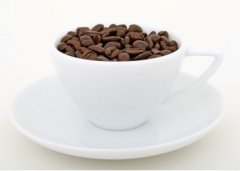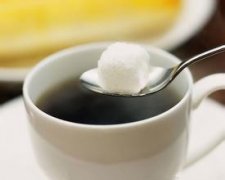Which compounds in coffee are good for your health?

In 1980, the import of natural coffee in the United States reached 3.872 billion US dollars, and the per capita coffee consumption in the United States began to decline in 1983, from 7.6lbs per year in 1983 to 7.4lbs in 1985. It is assumed that coffee is being condemned because of a few medical articles. Coffee has become a much more negative role, and coffee is regarded as a first-class enemy that affects the health of the American public. At that time, at the initiative of the Starbucks chain with thousands of coffee shops, coffee became not only the United States, but also the number one drink in the world. Contemporary scientific research has gradually denied unfair comments on coffee and inadequate research on caffeine. The latest research shows that coffee not only contains caffeine, but also contains many effective compounds, suitable for drinking coffee is not only safe, but also good for health, can prevent some diseases. It is for this reason that coffee drinkers in the United States still drink coffee in moderation, which not only gives money to the coffee industry, but also makes people smarter, more lucky, and healthier. Two soft drink companies, accused of alienating the use of several elements in drinking guesses that could cause a carcinogenic chemical, agreed to change the formula and return drinks containing carcinogenic bodies bought by consumers. Independent laboratory tests create a Vault Zero sample that contains 13ppb benzene, while other drinks are between 5-10ppb. In the United States, benzene content is the upper limit of insurance in 5ppt, while the national health structure will be limited to 10ppt. Less than a year after Vault Zero operated in the United States, it was embroiled in a current lawsuit against Coca-Cola over benzene. Benzene is listed as a carcinogen by the global health authority, of course, the content of the drink will not cause the death of health. Experts from the US Food and Drug Administration first revealed that benzene still exists in some drinks and exceeded the safe lower limit of drinking water in the United States, and then the legal debate on benzene in soft drinks has been going on for six months. However, FDA and the American soft drinks Association claim that there is no harm to consumers' health. In the UK, four beverages have been dispatched that exceed the national limits on benzene content in sanitary distribution. Food safety agencies and soft drink companies once again claim that low levels of benzene are not harmful to consumers' health. The American Beverage Association said: FDA has been repeatedly reviewed over the years that low levels of benzene are harmful to consumers' health.
Dr Winkelmayer and his colleagues from Harvard University in the United States examined two self-administered examination papers taken by 155594 people between 1990-1991 and 2002-2003, creating women with previously abnormal blood pressure who later developed high blood pressure. Through complex statistical research, they created these housewives to regularly drink cola instead of coffee and tea. The results suggest that there is no link between coffee and hypertension. Women who drank more than three cups of coffee a day had high blood pressure compared with women who drank little or no coffee, or only 7% of women had high blood pressure. However, among the elderly and young housewives, there was a significant relationship between Coke consumption and high blood pressure. Drinking 4 tins of sugary cola drinks a day compared with housewives who rarely or never drank them increased the contusions of high blood pressure by 28% and 44%. The authors exaggerate that their study shows no biological evidence for the relationship between cola and high blood pressure. It is suggested that various studies should be conducted to collect the effects of caramel in all colas and high fructose corn syrup in sweetened cola on the human body. The study found that high fructose corn syrup with a content of more than 55% had nothing to do with the increased incidence of obesity and weight-related diseases over the past 10 years. The opposite has also been found in plant practice, where plants fed with large amounts of fructose usually cause high blood pressure. High blood pressure is thought to be the cause of coronary heart disease and stroke. There is also a documented explanation that consuming large amounts of caffeine every day can cause blood pressure to rise. 200-250 mg of caffeine is equivalent to 2-3 cups of coffee, which can cause systolic and diastolic blood pressure to rise. Although people who drink caffeine may not necessarily have a tolerance to elevated blood pressure, the consequences of the study have revealed that this tolerance may be different even among those who drink coffee every day.
Important Notice :
前街咖啡 FrontStreet Coffee has moved to new addredd:
FrontStreet Coffee Address: 315,Donghua East Road,GuangZhou
Tel:020 38364473
- Prev

The healthy Life of Coffee studies the relationship between health and caffeine
There is no data to show that caffeine or drinking coffee is harmful to your health. On the contrary, some studies have shown that caffeine is good for human health. People often ask: how much coffee is too much? In fact, it all depends on the individual's bearing capacity and habits. A cup of coffee contains an average of 60 to 90 milligrams of caffeine, while the average human body consumes nearly 500 to 600 milligrams of caffeine a day.
- Next

Learn how to drink coffee healthily and healthily
Learn to drink black coffee healthily. Caffeine is a central nervous stimulant, which can accelerate the heartbeat and sweat to promote metabolism, which is also one of the main pharmacological effects of coffee on weight loss, but if caffeine can inhibit appetite, we really do not see its mechanism. He said that there are indeed many patients in the clinic who have tried black coffee to lose weight. Some people drink more than 10 drinks a day.
Related
- Detailed explanation of Jadeite planting Land in Panamanian Jadeite Manor introduction to the grading system of Jadeite competitive bidding, Red bid, Green bid and Rose Summer
- Story of Coffee planting in Brenka region of Costa Rica Stonehenge Manor anaerobic heavy honey treatment of flavor mouth
- What's on the barrel of Blue Mountain Coffee beans?
- Can American coffee also pull flowers? How to use hot American style to pull out a good-looking pattern?
- Can you make a cold extract with coffee beans? What is the right proportion for cold-extracted coffee formula?
- Indonesian PWN Gold Mandrine Coffee Origin Features Flavor How to Chong? Mandolin coffee is American.
- A brief introduction to the flavor characteristics of Brazilian yellow bourbon coffee beans
- What is the effect of different water quality on the flavor of cold-extracted coffee? What kind of water is best for brewing coffee?
- Why do you think of Rose Summer whenever you mention Panamanian coffee?
- Introduction to the characteristics of authentic blue mountain coffee bean producing areas? What is the CIB Coffee Authority in Jamaica?

